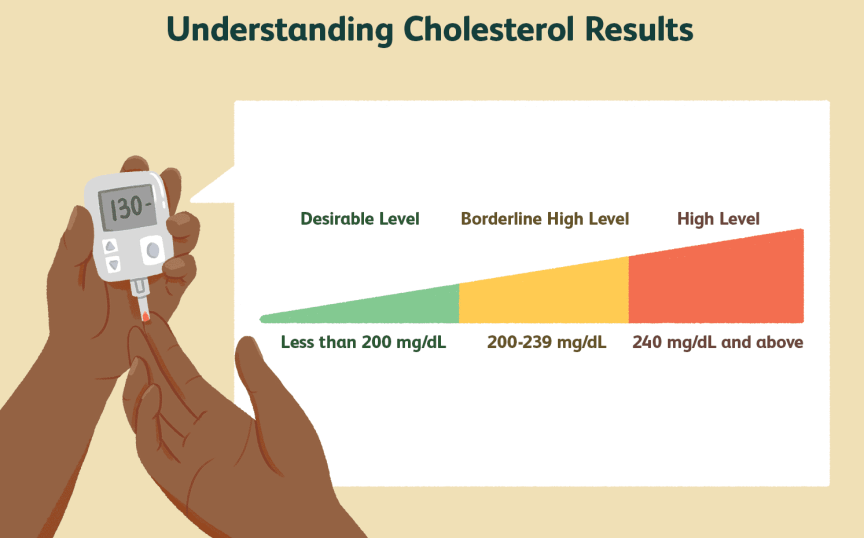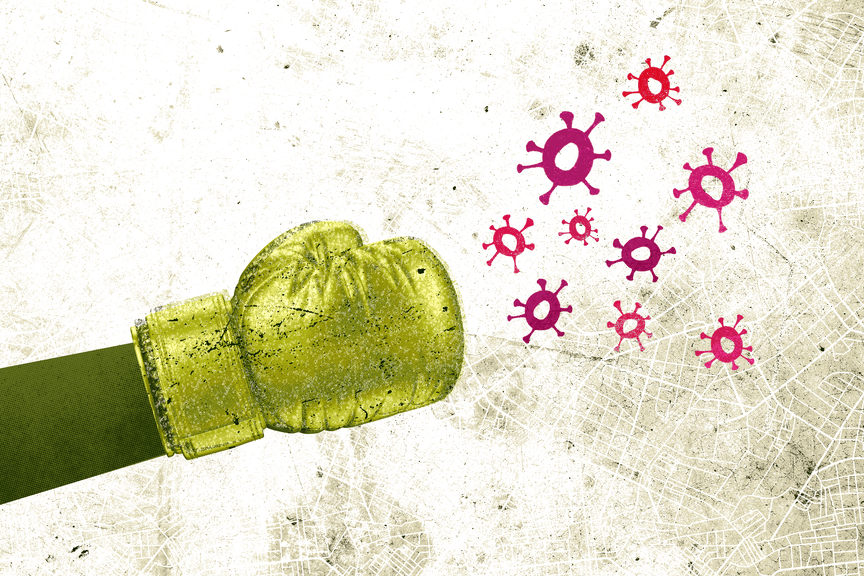Learn why leading HR professionals trust ekincare! Explore Now

In the thrilling performance that is modern life, stress plays the leading role. It pushes us forward, and fuels our ambitions, but can also wear us out if we let it take control. Like tightrope walkers, we balance our duties, emotions, and challenges, all while trying not to fall. Stress is a reality we can't escape. As we tackle the ups and downs of daily life, understanding and managing stress is essential. And this isn't just for our peace of mind - it's vital for our physical health too, particularly our blood health. In this article, we'll explore the impact of stress on blood health, delve into the most common workplace stressors, and examine effective employee stress management programs. These insights aim to promote healthier and happier employees.

Stress is a normal reaction our bodies have when faced with challenges or demands, forcing us to adjust or react (often referred to as a "fight or flight" response). But not all stress is created equal.
Acute Stress: This short-term stress comes from specific events or situations. It might be a fast-approaching deadline or a sudden shift in plans. Interestingly, this type of stress can be good for us. It keeps us alert and focused on the task at hand.
Chronic Stress: This is the long-lasting stress that doesn't seem to go away. It's often due to constant pressures and demands in our life. Unfortunately, this type of stress is harmful, and over time, it can take a serious toll on our physical and mental health.
You may wonder how stress links to blood health. The connection is more direct than you might think:
High Blood Pressure: Stress hormones can make our blood vessels tighten up, causing a temporary rise in blood pressure. If we're constantly stressed, this can lead to always high blood pressure, putting us at risk for hypertension and other serious health issues.
Altered Cholesterol Levels: Research tells us that chronic stress can increase the levels of "bad" cholesterol (LDL) and lower the "good" cholesterol (HDL). This shift can make us more susceptible to heart disease.

Changed Blood Sugar Levels: Under stress, our liver may produce extra glucose, leading to high blood sugar. This persistent high blood sugar can up our chances of developing type 2 diabetes and other related health problems.
Weak Immunity: Stress can weaken the immune system, making us more susceptible to infections and diseases. Chronic stress can also cause inflammation in the body, which can lead to several health issues, including cardiovascular diseases.

Many things can cause stress at work. Some of the most common are:
Too Much Work and Tight Deadlines: When the workload is heavy, and the clock is ticking, stress can skyrocket.
Poor Balance Between Work and Life: If work takes up all our time, and there's little left for anything else, stress can creep up on us.
Uncertainty About Job Security: Not knowing if our job is secure can make us feel stressed.
Conflicts With Co-workers or Office Politics: Dealing with difficult people or getting caught in office politics can lead to stress.
Not Having Enough Support or Resources: When we don't have the resources or support we need to do our job, it's easy to feel stressed.
To combat stress and keep employees healthy, employers can use different stress management programs. Some of them are:
Programs on Mindfulness and Meditation: Mindfulness and meditation help reduce stress and improve well-being. Employers can train employees in these techniques or arrange meditation sessions.
Exercise and Physical Activity Programs: Exercise helps fight stress and keeps our blood healthy. Employers can offer fitness facilities at the workplace, organize walking meetings, or get discounts at local gyms.
Flexible Work Schedules: Flexibility in work hours or the ability to work from home can lower stress. Employers need to set clear rules for these flexible schedules.

Employee Assistance Programs (EAPs): EAPs offer resources and support to help employees manage stress and other personal issues. Employers should choose a program that provides many services like counselling, legal help, and financial planning.
Wellness Programs at Work: A good wellness program helps employees handle stress and promotes overall health. A successful program might include education about healthy eating, mental health resources, and social events.
To find out if these stress management programs are making a difference, employers need to keep an eye on the stress levels of employees and how many people participate in the programs. They can do this by asking employees through surveys or focus groups. They can also look at signs like how often employees are absent or leave the job. It's also important for employers to check the programs' impact on employees' blood health. They can do this by keeping track of things like blood pressure and inflammation markers.

Let's now turn our attention to personal strategies for managing stress and improving blood health:
Keep Moving: Regular exercise isn't just a ticket to a toned body—it's a real stress buster. Research has found that physical activity can act as a "stress buffer." Plus, it's fantastic for our blood, boosting circulation, lowering blood pressure, and cutting cholesterol levels.
Try Mindfulness and Meditation: Mindfulness and meditation are more than just buzzwords. They've been scientifically shown to reduce stress levels. Plus, they can help lower our blood pressure and boost our overall well-being.
Eat Right: Eating a balanced diet is about more than staying trim. Certain nutrients, like omega-3 fatty acids, can help reduce stress symptoms. A balanced diet is also packed with the antioxidants our blood needs to stay healthy.
Don't Skimp on Sleep: Sleep is not just for those who love to dream—it's crucial for busting stress. Plus, good quality sleep is linked to healthier blood pressure levels.
Cut Back on Booze and Caffeine: Going easy on alcohol and caffeine can make a big difference to stress and blood health. Studies show that excess caffeine can hike up stress hormones, and too much alcohol can raise our blood pressure.
Stay Social: Connecting with others isn't just for fun—it's a real stress buster. Positive social interactions can even help to lower blood pressure.
Don't Be Afraid to Get Professional Help: When stress and blood health become tough to manage, don't hesitate to seek professional help. There are plenty of professionals ready to lend a hand.
In conclusion, stress is not just a mental or emotional issue - it has real, tangible effects on our physical health, particularly our blood health. As such, managing stress - both in our personal lives and in the workplace - is crucial.
The good news is that we can take control. The strategies we've shared, like regular exercise, trying mindfulness and meditation, eating a balanced diet, sleeping well, cutting back on alcohol and caffeine, socializing, and seeking help when needed, can go a long way in keeping stress at bay and our blood in top shape.
Employers, in particular, have a vital role to play in this. By implementing effective employee stress management programs, they can help their employees manage stress better, leading to improved health outcomes and better productivity. It's a win-win situation for everyone.
So let's prioritize stress management. Let's be more aware, proactive, and supportive in our efforts to combat stress. Our health - and our lives - may depend on it.
Learn how your organisation can get the best employee health and well-being experience with ekincare`s commitment to quality.